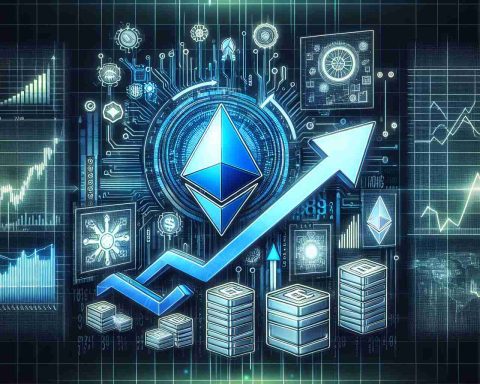Market Activity of D-Wave Quantum Inc.
In a noteworthy financial maneuver, D-Wave Quantum Inc. CEO Alan E. Baratz recently divested 8,372 shares of his company’s stock, netting approximately $44,120 in total from this transaction. This sale, which took place on January 23rd, slightly reduced his ownership to 2,342,208 shares valued at around $12.34 million, reflecting a modest 0.36% drop in his overall stake.
On the following trading day, D-Wave Quantum’s stock fell by 8.5%, closing at $5.58 after shifting nearly 75.5 million shares. The stock has shown significant movement over the past year, with a low of $0.75 and a high of $11.41. The company’s market valuation stands at $1.5 billion, with a price-to-earnings ratio indicating a challenging financial period.
Notably, institutional investors are increasingly active, with several firms like SG Americas Securities LLC and Barclays PLC expanding their positions. The latter raised its stake dramatically by 298.3% during the third quarter.
Analysts have also taken a keen interest, revising price targets significantly higher. Ratings by firms such as Craig Hallum and B. Riley have established a positive outlook, suggesting a potential for growth in D-Wave Quantum shares. As such, the average rating remains a solid “Buy,” with potential investors closely monitoring the evolving situation in this innovative tech arena.
Implications of D-Wave Quantum’s Market Activity
The recent developments surrounding D-Wave Quantum Inc. not only shed light on individual financial maneuvers but also signal larger implications for the tech industry’s trajectory. As quantum computing continues to gain traction, investor confidence in firms like D-Wave can have profound effects on societal innovation and the global economy. The technology promises to revolutionize fields ranging from cryptography to drug discovery, ultimately shaping the way businesses operate and compete on a global scale.
With the company experiencing dynamic fluctuations in stock value, the involvement of institutional investors indicates a growing recognition of quantum technologies as a critical component of future growth. Such interest aligns with a broader trend where investors are increasingly looking to capitalize on cutting-edge advancements. This could lead to increased funding for research and development, further accelerating innovation in both quantum technology and its applications.
However, these advancements may not come without consequences. The environmental footprint of quantum computing, particularly concerning data centers and energy consumption, warrants scrutiny. As these technologies advance, ensuring sustainable practices will be pivotal. Future trends may reveal a push for greener technologies within this high-energy sector, potentially leading the industry leaders to prioritize environmental responsibility.
In summary, while the immediate financial indicators highlight a fluctuating market for D-Wave Quantum, the long-term significance holds the potential for transformative impacts across society, culture, and the economy—positioning quantum computing as a linchpin of future progress.
The Future of D-Wave Quantum Inc.: Trends, Insights, and Market Analysis
Market Activity of D-Wave Quantum Inc.
D-Wave Quantum Inc. continues to capture attention in the technology and finance sectors with its innovative approach to quantum computing. The recent financial activity, particularly by CEO Alan E. Baratz, has raised questions about the company’s market trajectory and the future of quantum computing technology.
Recent Financial Developments
Following Baratz’s sale of 8,372 shares for approximately $44,120, which reduced his ownership to 2,342,208 shares valued at around $12.34 million, D-Wave Quantum experienced an 8.5% decline in its stock price, settling at $5.58. This fluctuation reflects the company’s volatile trading environment, with shares peaking at $11.41 and dipping as low as $0.75 in the past year. The current market valuation stands at $1.5 billion, reinforcing the industry’s perception of the company’s stock as under pressure based on recent performance and the price-to-earnings ratio.
Institutional Interest and Investor Activity
An emerging trend in D-Wave’s ecosystem is the increased involvement of institutional investors. Notable firms like SG Americas Securities LLC and Barclays PLC are pivoting their strategies, with Barclays raising its stake by an impressive 298.3% in the third quarter. This uptick signifies strong institutional belief in D-Wave’s long-term potential, despite the company’s current market hurdles.
Analyst Outlook and Ratings
Analysts are optimistic about D-Wave Quantum’s future. Ratings from investment firms such as Craig Hallum and B. Riley have recently elevated the company’s stock prospects, leading to an improved average rating of “Buy.” This sentiment is fueled by the anticipated advancements in quantum technology and the increasing demand for high-performance computing solutions across various industries.
Pros and Cons of Investing in D-Wave Quantum
# Pros:
– Innovative Technology: D-Wave is a leader in quantum computing, specializing in quantum annealing technology, which can solve complex problems faster than traditional computers.
– Growing Institutional Support: Increased institutional investment indicates confidence in the company’s strategy and its potential for growth.
# Cons:
– Stock Volatility: The recent stock price fluctuations may deter risk-averse investors.
– Competitive Market: The quantum computing space is becoming increasingly crowded, with growing competition from other tech giants.
Use Cases and Applications
D-Wave Quantum’s technology has extensive applications across various sectors, including:
– Finance: For optimizing portfolios and performing complex risk assessments.
– Healthcare: In drug discovery and personalized medicine.
– Logistics: For route optimization and supply chain efficiency.
Future Trends and Sustainability
As quantum technology evolves, sustainability will play a crucial role. D-Wave aims to minimize its environmental impact through energy-efficient computing processes. Predictions indicate that sustainable practices will become integral to operational strategies in tech firms, including quantum computing innovators like D-Wave.
Conclusion
The market activity surrounding D-Wave Quantum Inc. reflects broader trends in the quantum computing industry. With increasing institutional backing, positive analyst ratings, and innovative applications in various fields, D-Wave could be well-positioned for significant growth. As the landscape of technology continues to shift, stakeholders will need to watch these developments closely.
For more insights on D-Wave Quantum Inc. and its industry impacts, visit D-Wave Systems.







